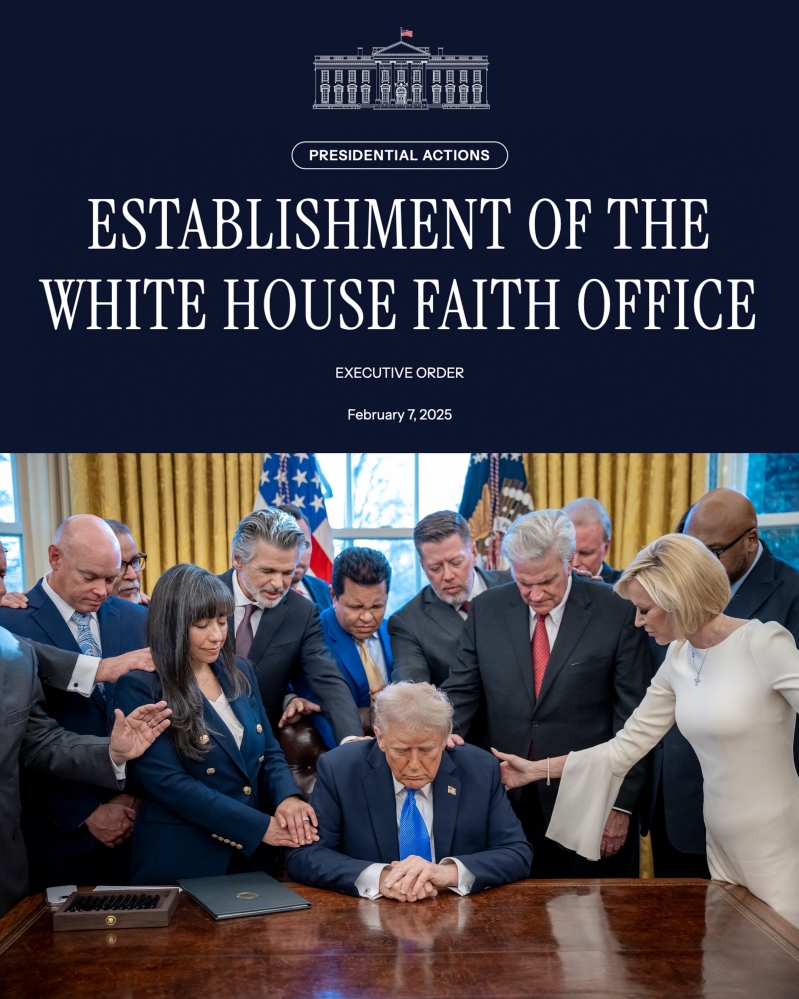
In a move that underscores his deepening focus on faith in public life, President Donald Trump has announced the creation of the White House Faith Office, a dedicated branch designed to strengthen the role of religious organizations in government affairs. The initiative is being hailed by supporters as a victory for religious freedom, while critics warn of potential conflicts between church and state.
A New Era of Faith in Politics?
The Faith Office will act as a liaison between religious organizations and government agencies, ensuring that faith-based groups have greater influence on policy decisions related to education, healthcare, and social services.
In a recent announcement, President Donald Trump unveiled the establishment of the White House Faith Office, emphasizing its role in combating what he perceives as anti-Christian bias within federal agencies. He stated, "We will put an end to anti-Christian bias once and for all." according to The White House.
The office is expected to play a key role in addressing religious discrimination, with Trump pledging that his administration will "put an end to anti-Christian bias once and for all."
Who’s Leading the Charge?
Though no official leader has been named yet, insiders suggest Trump is likely to appoint a well-known evangelical figure to oversee the office. The initiative has already received strong backing from some of Trump’s most loyal religious allies, many of whom played a key role in his past campaigns.
"The office is expected to focus on several key areas, including expanding the role of religious organizations in policy-making, advocating for traditional Christian values, and addressing concerns related to perceived discrimination against Christians."
Supporters Cheer, Critics Sound the Alarm
Religious conservatives have welcomed the move, calling it a long-overdue step to restore faith’s influence in American governance. Many see it as a way to push back against progressive policies that they argue have marginalized Christian values.
However, civil rights groups and secular organizations have been quick to voice their opposition. Critics warn that the initiative threatens the separation of church and state and could lead to preferential treatment for certain religious groups over others.
A Legacy of Faith-Based Politics
Trump’s embrace of religious advocacy is not new. Throughout his political career, he has positioned himself as a champion of conservative Christian values, forging deep ties with evangelical leaders and frequently invoking religious rhetoric in his speeches. His latest move only cements his reputation as one of the most faith-driven figures in modern American politics.
As the White House Faith Office begins its work, its impact remains uncertain. Will it usher in a new era of faith-driven policy, or will it ignite a fresh wave of legal and political battles? One thing is clear—Trump is once again betting big on religion as a cornerstone of his influence.






